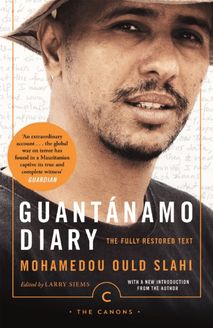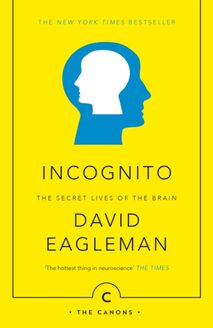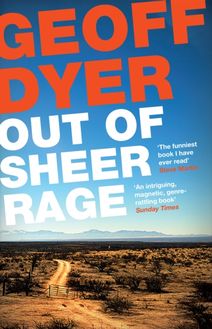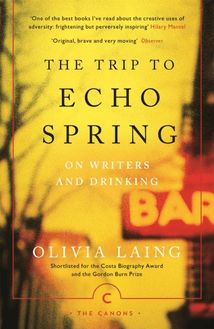-
 Univers
Univers
-
 Ebooks
Ebooks
-
 Livres audio
Livres audio
-
 Presse
Presse
-
 Podcasts
Podcasts
-
 BD
BD
-
 Documents
Documents
-
- Cours
- Révisions
- Ressources pédagogiques
- Sciences de l’éducation
- Manuels scolaires
- Langues
- Travaux de classe
- Annales de BEP
- Etudes supérieures
- Maternelle et primaire
- Fiches de lecture
- Orientation scolaire
- Méthodologie
- Corrigés de devoir
- Annales d’examens et concours
- Annales du bac
- Annales du brevet
- Rapports de stage
La lecture à portée de main
Vous pourrez modifier la taille du texte de cet ouvrage
Découvre YouScribe en t'inscrivant gratuitement
Je m'inscrisDécouvre YouScribe en t'inscrivant gratuitement
Je m'inscrisEn savoir plus
Vous pourrez modifier la taille du texte de cet ouvrage
En savoir plus

Description
Sujets
Informations
| Publié par | Canongate Books |
| Date de parution | 02 février 2012 |
| Nombre de lectures | 0 |
| EAN13 | 9780857863393 |
| Langue | English |
| Poids de l'ouvrage | 1 Mo |
Informations légales : prix de location à la page 0,0400€. Cette information est donnée uniquement à titre indicatif conformément à la législation en vigueur.
Extrait
Also by Geoff Dyer
Zona
Working the Room: Essays and Reviews 1999–2010
Jeff in Venice, Death in Varanasi
The Ongoing Moment
Yoga for People Who Can’t Be Bothered to Do It
Anglo-English Attitudes: Essays, Reviews and Misadventures 1984–99
Paris Trance
The Missing of the Somme
But Beautiful
The Colour of Memory
Ways of Telling: The Work of John Berger
This edition published in Great Britain in 2012 by Canongate Books, 14 High Street, Edinburgh, EH1 1TE
www.canongate.tv
This digital edition first published by Canongate in 2012
Copyright © Geoff Dyer, 1997 Introduction copyright © Maggie O’Farrell, 2012
The moral rights of the authors have been asserted
First published in Great Britain in 1997 by Little, Brown and Company
Grateful acknowledgement is made to the following for their kind permission to reproduce copyright material: Laurence Pollinger Limited and the Estate of Frieda Lawrence Ravagli for quotations from the works and letters of D. H. Lawrence; Farrar, Straus and Giroux Inc. for the excerpt from ‘Question of Travel’ in The Complete Poems 1927-1979 by Elizabeth Bishop; copyright © 1979, 1983 by Alice Helen Methfessel; and to Jeremy Reed for the quotation from ‘The Return’.
The Canons editorial board: Ailah Ahmed, Jamie Byng, Liz Calder, Geoff Dyer, Nick Lezard, John Seaton and Erica Wagner
British Library Cataloguing-in-Publication Data A catalogue record for this book is available on request from the British Library
ISBN 978 0 85786 234 1 eISBN: 978 0 85786 339 3
Typeset in Goudy by Palimpsest Book Production Ltd, Falkirk, Stirlingshire
Out of Sheer Rage
per – you see I can speak Italian – Valeria
‘Out of sheer rage I’ve begun my book on Thomas Hardy. It will be about anything but Thomas Hardy I am afraid – queer stuff – but not bad.’
D. H. Lawrence, 5 September, 1914
‘Endless explanations of irrelevancies, and none whatever of things indispensable to the subject.’
Gustave Flaubert on Victor Hugo’s Les Miserables
‘It must all be considered as though spoken by a character in a novel.’
Roland Barthes
Looking back it seems, on the one hand, hard to believe that I could have wasted so much time, could have exhausted myself so utterly, wondering when I was going to begin my study of D. H. Lawrence; on the other, it seems equally hard to believe that I ever started it, for the prospect of embarking on this study of Lawrence accelerated and intensified the psychological disarray it was meant to delay and alleviate. Conceived as a distraction, it immediately took on the distracted character of that from which it was intended to be a distraction, namely myself. If, I said to myself, if I can apply myself to a sober – I can remember saying that word ‘sober’ to myself, over and over, until it acquired a hysterical, near-demented, ring – if I can apply myself to a sober, academic study of D. H. Lawrence then that will force me to pull myself together. I succeeded in applying myself but what I applied myself to – or so it seems to me now, now that I am lost in the middle of what is already a far cry from the sober academic study I had envisaged – was to pulling apart the thing, the book, that was intended to make me pull myself together.
I had decided years earlier that I would one day write a book about D. H. Lawrence, a homage to the writer who had made me want to become a writer. It was a cherished ambition and as part of my preparation for realising this cherished ambition I had avoided reading anything by Lawrence so that at some point in the future I could go back to him if not afresh then at least not rock-stale. I didn’t want to go back to him passively, didn’t want to pick up a copy of Sons and Lovers aimlessly, to pass the time. I wanted to read him with a purpose. Then, after years of avoiding Lawrence, I moved into the phase of what might be termed pre-preparation. I visited Eastwood, his birthplace, I read biographies, I amassed a hoard of photographs which I kept in a once-new document wallet, blue, on which I had written ‘D.H.L.: Photos’ in determined black ink. I even built up an impressive stack of notes with Lawrence vaguely in mind but these notes, it is obvious to me now, actually served not to prepare for and facilitate the writing of a book about Lawrence but to defer and postpone doing so. There is nothing unusual about this. All over the world people are taking notes as a way of postponing, putting off and standing in for. My case was more extreme for not only was taking notes about Lawrence a way of putting off writing a study of – and homage to – the writer who had made me want to become a writer, but this study I was putting off writing was itself a way of putting off and postponing another book.
Although I had made up my mind to write a book about Lawrence I had also made up my mind to write a novel, and while the decision to write the book about Lawrence was made later it had not entirely superseded that earlier decision. At first I’d had an overwhelming urge to write both books but these two desires had worn each other down to the point where I had no urge to write either. Writing them both at the same time was inconceivable and so these two equally overwhelming ambitions first wore each other down and then wiped each other out. As soon as I thought about working on the novel I fell to thinking that it would be much more enjoyable to write my study of Lawrence. As soon as I started making notes on Lawrence I realised I was probably sabotaging forever any chance of writing my novel which, more than any other book I had written, had to be written immediately, before another protracted bout of labour came between me and the idea for what I perceived as a rambling, sub-Bernhardian rant of a novel. It was now or never. So I went from making notes on Lawrence to making notes for my novel, by which I mean I went from not working on my book about Lawrence to not working on the novel because all of this to-ing and fro-ing and note-taking actually meant that I never did any work on either book. All I did was switch between two – empty – files on my computer, one conveniently called C:\DHL, the other C:\NOVEL, and sent myself ping-ponging back and forth between them until, after an hour and a half of this, I would turn off the computer because the worst thing of all, I knew, was to wear myself out in this way. The best thing was to do nothing, to sit calmly, but there was no calm, of course: instead, I felt totally desolate because I realised that I was going to write neither my study of D. H. Lawrence nor my novel.
Eventually, when I could bear it no longer, I threw myself wholeheartedly into my study of Lawrence because, whereas my novel was going to take me further into myself, the Lawrence book – a sober academic study of Lawrence – would have the opposite effect, of taking me out of myself.
I felt happy because I had made up my mind. Now that I had made up my mind to throw myself wholeheartedly into one of the possible books I had been thinking about writing I saw that it didn’t actually matter which book I wrote because books, if they need to be written, will always find their moment. The important thing was to avoid awful paralysing uncertainty and indecision. Anything was better than that. In practice, however, ‘throwing myself wholeheartedly’ into my study of Lawrence meant making notes, meant throwing myself half -heartedly into the Lawrence book. In any case, ‘throwing myself wholeheartedly into my study of Lawrence’ – another phrase which became drained of meaning as it spun round my head – was actually impossible because, in addition to deciding whether or not I was going to write my study of Lawrence, I had to decide where I was going to write it – if I was going to write it. ‘ If ’ not when because once my initial euphoric resolve had collapsed the possibility of writing the novel made itself felt again as an attractive option. And even if I didn’t decide to write my study of Lawrence I still had to decide where I was going to live because, irrespective of whether or not I was going to write my study of Lawrence, I still had to live somewhere – but if I was going to write a book about Lawrence then that brought in a whole range of variables which I would need to weigh up when considering where to live, even though deciding where to live was already complicated by a massive number of variables.
One of the reasons, in fact, that it was impossible to get started on either the Lawrence book or the novel was because I was so preoccupied with where to live. I could live anywhere, all I had to do was choose – but it was impossible to choose because I could live anywhere. There were no constraints on me and because of this it was impossible to choose. It’s easy to make choices when you have things hampering you – a job, kids’ schools – but when all you have to go on is your own desires, then life becomes considerably more difficult, not to say intolerable.
Even money wasn’t an issue since at this stage I was living in Paris and nowhere could have been more expensive than Paris. The exchange rate got worse by the month and Paris became more expensive by the month. Money was an issue insofar as it made me think I would rather be anywhere than Paris but in terms of where to go next, where to move to, it was almost irrelevant. What the money situation – more exactly, the exchange rate situation – in Paris did was to emphasise that although I thought I had settled in Paris, really I had just been passing through, extremely slowly. That is all anyone English or American can do in Paris: pass through. You may spend ten years passing through but essentially you are still a sightseer, a tourist. You come and go, the waiters remain. The longer I stayed the more powerful it became, this feeling that I was just passing through. I had thought about subscribing to Canal Plus as a way of making myself feel more settled but what was the point in subscribing to
-
 Univers
Univers
-
 Ebooks
Ebooks
-
 Livres audio
Livres audio
-
 Presse
Presse
-
 Podcasts
Podcasts
-
 BD
BD
-
 Documents
Documents
-
Jeunesse
-
Littérature
-
Ressources professionnelles
-
Santé et bien-être
-
Savoirs
-
Education
-
Loisirs et hobbies
-
Art, musique et cinéma
-
Actualité et débat de société
-
Jeunesse
-
Littérature
-
Ressources professionnelles
-
Santé et bien-être
-
Savoirs
-
Education
-
Loisirs et hobbies
-
Art, musique et cinéma
-
Actualité et débat de société
-
Actualités
-
Lifestyle
-
Presse jeunesse
-
Presse professionnelle
-
Pratique
-
Presse sportive
-
Presse internationale
-
Culture & Médias
-
Action et Aventures
-
Science-fiction et Fantasy
-
Société
-
Jeunesse
-
Littérature
-
Ressources professionnelles
-
Santé et bien-être
-
Savoirs
-
Education
-
Loisirs et hobbies
-
Art, musique et cinéma
-
Actualité et débat de société
- Cours
- Révisions
- Ressources pédagogiques
- Sciences de l’éducation
- Manuels scolaires
- Langues
- Travaux de classe
- Annales de BEP
- Etudes supérieures
- Maternelle et primaire
- Fiches de lecture
- Orientation scolaire
- Méthodologie
- Corrigés de devoir
- Annales d’examens et concours
- Annales du bac
- Annales du brevet
- Rapports de stage




















